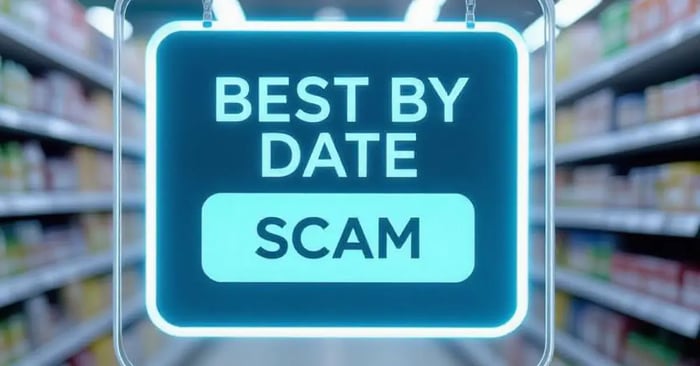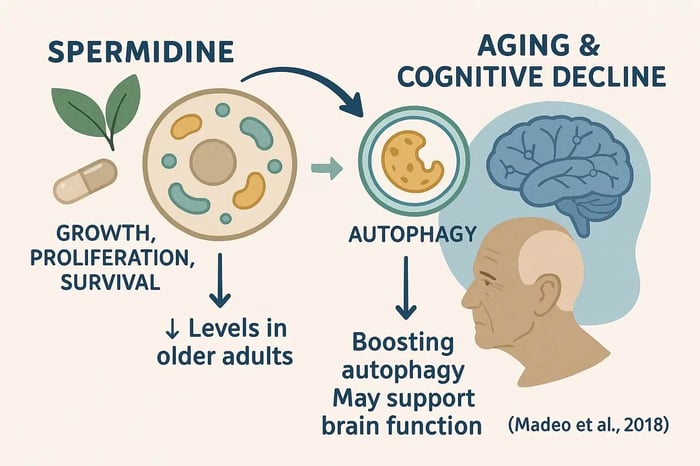Don't Fall for the Best By Date Scam That's Costing You Thousands
How Companies Use Fake Expiration Dates to Manipulate Consumers and Boost Profits
The Truth About Best By Dates Will Shock You
"Best By" dates aren't required by the FDA and have zero legal meaning. These arbitrary marketing dates are designed to create artificial urgency, convincing you to discard perfectly safe, effective products. Unlike FDA-mandated expiration dates that indicate genuine safety concerns, best by dates serve one purpose: generating more sales through manufactured scarcity.
Real vs Fake Expiration Dates: What Actually Matters
Understanding the difference between legitimate safety dates and marketing manipulation can save you hundreds of dollars annually. The supplement and consumer goods industries deliberately blur these lines to maximize profits at your expense.
| Date Type | FDA Requirement | True Purpose | Consumer Impact | Scientific Basis |
|---|---|---|---|---|
| "Best By" Dates | None - Completely Optional | Create artificial urgency to drive repeat sales | Waste money on unnecessary repurchases | Zero scientific backing required |
| Expiration Dates | Required for safety-critical products | Indicate genuine safety or efficacy decline | Protect consumer health and safety | Backed by stability testing data |
| Manufacture Dates | Often required for transparency | Show actual product age and freshness | Enable informed purchasing decisions | Factual production information |
The Staggering Cost of the Best By Date Scam
The financial impact of this deceptive practice extends far beyond individual households:
- $1,500+ per family annually: Average amount American households waste on "expired" products that remain perfectly usable
- 40% of supplement waste: Percentage of discarded vitamins and supplements directly attributed to misleading best by dates
- 80 billion pounds annually: Total food waste in America, with expiration date confusion being the leading cause
- 20-30% profit boost: Typical sales increase companies experience by using aggressive best by date strategies
- Zero scientific justification: Number of studies supporting most best by dates on supplements and consumer products
How the Scam Actually Works
Companies deliberately choose dates far shorter than actual product shelf life. Internal marketing documents reveal strategies to set best by dates at 50-70% of true product stability timelines. This creates multiple purchase cycles where one should suffice, effectively doubling or tripling revenue per customer without providing additional value.
Industries Exploiting the Best By Date Loophole
The best by date scam extends far beyond food products. Supplement companies, cosmetics manufacturers, and household product brands have adopted these manipulative practices across virtually every consumer category:
Dietary Supplements and Vitamins
Supplement companies face minimal FDA oversight regarding expiration dates. Most vitamins remain potent for years beyond arbitrary best by dates, yet consumers regularly discard bottles with months or years of effectiveness remaining. This practice is particularly egregious because supplements are inherently stable compounds that degrade slowly under normal storage conditions. Even memes have come out showing how some 200 million year old mineral salt, somehow just expired according to a date.
Personal Care and Cosmetics
Skincare products, shampoos, and cosmetics often display best by dates that bear no relationship to actual product degradation. Many of these products contain preservatives specifically designed to maintain stability far beyond their labeled dates.
Household and Cleaning Products
Cleaning supplies, detergents, and household chemicals rarely lose effectiveness on the timeline suggested by best by dates. These products maintain their cleaning power and safety profile for years when stored properly.
Why Most Companies Choose Deception Over Honesty
The psychology behind best by date manipulation reveals the calculated nature of this consumer fraud. Companies understand that artificial urgency triggers immediate purchasing behavior, while extending apparent shelf life reduces purchase frequency.
Marketing research consistently shows that consumers trust printed dates implicitly, rarely questioning their scientific basis. This trust becomes a vulnerability that unscrupulous companies exploit through:
- Shortened timelines: Setting dates at 50-60% of actual product life
- Vague terminology: Using confusing phrases like "best if used by" to obscure meaning
- Psychological pressure: Creating fear about using "expired" products
- Repeat purchase cycles: Training consumers to repurchase unnecessarily
Why RevGenetics Refuses to Participate in This Scam
We've made a conscious choice to prioritize customer trust over short-term profits.
While other supplement companies could easily increase sales by 20-30% using aggressive best by date tactics, we believe you deserve honest information about your products. Our approach reflects genuine respect for your intelligence and budget:
- Manufacture dates only: You know exactly when your supplements were produced, enabling informed decisions about freshness
- No artificial deadlines: We won't create fake urgency to manipulate your purchasing behavior
- Transparent shelf life information: Honest guidance about actual product stability and potency retention
- Consumer education: Clear explanations about supplement stability and proper storage
The supplement industry offers companies three labeling options: expiration dates (requiring expensive stability testing), manufacture dates, both, or sometimes neither. We chose manufacture dates because they provide useful information without marketing manipulation. You deserve to make informed decisions based on facts, not artificial pressure.
Shop Honest SupplementsHow to Protect Yourself from Best By Date Manipulation
Step-by-Step Guide to Avoiding the Scam
- Ignore best by dates completely: Treat them as marketing suggestions rather than safety information
- Focus on manufacture dates: These provide actual information about product age and freshness
- Use sensory evaluation: Trust your eyes, nose, and common sense over arbitrary printed dates
- Research product stability: Most supplements, cosmetics, and household products remain effective far beyond suggested dates
- Support transparent companies: Choose brands that prioritize honest labeling over manipulative marketing
- Educate others: Share this information with family and friends to help them avoid unnecessary waste
- Question aggressive dating: Be suspicious of products with unusually short best by periods
The Psychology Behind Consumer Manipulation
Understanding why the best by date scam works so effectively reveals important insights about consumer behavior and corporate exploitation. Companies leverage several psychological principles to maximize the impact of their deceptive dating practices:
Authority Bias and Trust in Labels
Consumers naturally assume that printed information on product labels represents official guidance or regulatory requirements. This assumption allows companies to present marketing dates with the same visual authority as legally mandated safety information.
Loss Aversion and Waste Fear
The fear of using potentially degraded products outweighs the financial cost of replacement for most consumers. Companies exploit this psychological tendency by creating uncertainty about product safety beyond arbitrary dates.
Convenience and Decision Fatigue
Evaluating actual product condition requires time and mental energy. Arbitrary dates provide seemingly simple decision rules, even when those rules work against consumer interests.
Industry Insider Revelations
Marketing professionals openly discuss best by date strategies in trade publications and conferences. These discussions reveal the calculated, profit-driven nature of these practices. Companies regularly test different date ranges to find the optimal balance between consumer acceptance and purchase frequency.
Legal and Regulatory Landscape
The regulatory environment surrounding product dating reveals significant gaps that companies exploit. Understanding these gaps empowers consumers to make better decisions and advocate for stronger protections.
FDA Oversight Limitations
The FDA requires expiration dates only for products where safety genuinely declines over time. For most consumer products, including supplements, cosmetics, and household items, dating remains largely unregulated, creating opportunities for abuse.
State-Level Variations
Different states maintain varying requirements for product dating, creating a patchwork of regulations that companies navigate strategically. This complexity obscures consumer understanding and enables manipulative practices.
International Comparisons
European regulations provide stronger consumer protections against misleading date labeling. American consumers face greater exposure to manipulative dating practices due to weaker regulatory oversight.
The Environmental Impact of Date-Driven Waste
The best by date scam creates massive environmental consequences that extend far beyond individual financial losses. Understanding these impacts reveals another dimension of corporate irresponsibility.
Artificial expiration dates contribute to:
- Unnecessary manufacturing: Increased production to replace prematurely discarded products
- Transportation emissions: Additional shipping and distribution for replacement products
- Packaging waste: Millions of containers discarded while contents remain viable
- Landfill burden: Perfectly good products contributing to waste streams
Frequently Asked Questions About the Best By Date Scam
Take Action Against Consumer Manipulation
Every time you see a suspicious best by date, remember that there's likely a marketing team celebrating another consumer falling for their artificial deadline. Your awareness and informed choices represent the most powerful tools for fighting this systematic deception. Choose companies that respect your intelligence and your budget.







